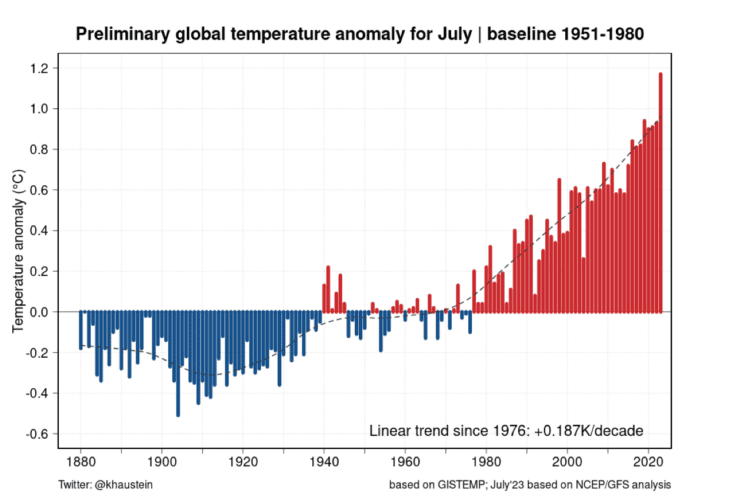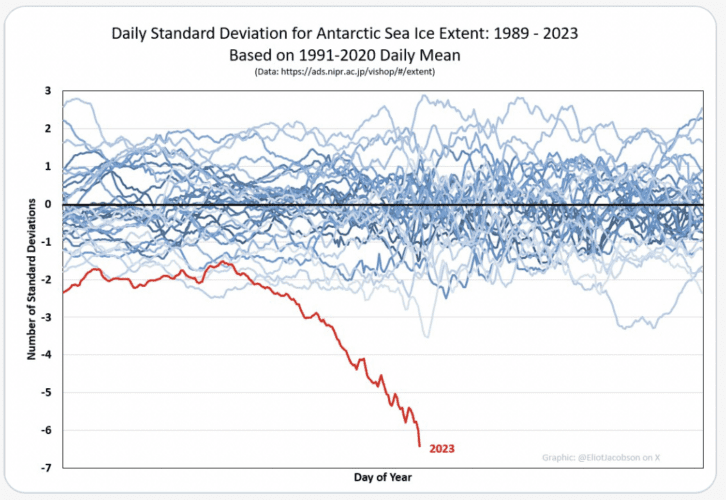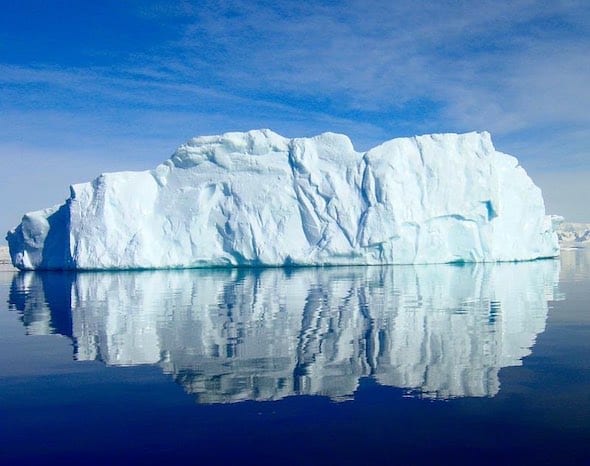July was the planet’s hottest month ever recorded – and may have been the hottest month in 120,000 years – according to a new analysis that comes as wildfires continue to rage across Europe.
July’s average global temperature is projected to be 1.3 to 1.7°C above pre-industrial averages, beating out the previous record holder, July 2019, by 0.2°C.
Scientists had already warned that July was set to break global temperature records, but this new analysis, from Dr Karsten Haustein, a climate scientist at Leipzig University, is the first to confirm it.
Global average temperatures have risen 1.2°C since 1850, with the UN predicting that current global government policies will see average temperatures rise 2.8°C above preindustrial levels – a far cry from the IPCC’s safest 1.5°C threshold, and evading even the more conservative 2°C threshold.
Those differences matter: the IPCC estimates that an extreme heat event that would usually have occurred once per decade in a preindustrial climate will happen 4.1 times a decade at °C of warming, and 5.6 times at 2C.
“Based on preliminary data, including forecast temperatures until the end of the month, it is virtually certain that July 2023 is going to be the warmest July by a wide margin with ~0.2°C (+/-0.1°C) above the previous record,” said Haustein.
“Not only will it be the warmest July, but the warmest month ever in terms of absolute global mean temperature.
“We may have to go back thousands if not tens of thousands of years to find similarly warm conditions on our planet.”

Christiana Figueres, former UN climate chief from 2010 to 2016, said the results were frightening, and should spur immediate action.
“The much used term “unprecedented” no longer describes the horrific temperatures we are experiencing,” Figueres said. “G20 nations are confronted with a dangerous reality they must decisively address with policies to accelerate the deployment of renewables and prudent phaseout of fossil fuels.
“One third of global electricity can be produced by solar and wind alone, but targeted national policies have to enable that transformation. Or we all scorch and fry.”
The current UN secretary general, Antonio Guterres, was equally bleak.
“Humanity is in the hot seat,” he told a press conference on Thursday. “For vast parts of North America, Asia, Africa and Europe, it is a cruel summer. For the entire planet, it is a disaster. And for scientists, it is unequivocal – humans are to blame.
“All this is entirely consistent with predictions and repeated warnings. The only surprise is the speed of the change. Climate change is here, it is terrifying, and it is just the beginning. The era of global warming has ended; the era of global boiling has arrived.”
Researchers say the results highlight the need to get serious about emissions reductions at COP28 in Dubai in December. To keep levels to the 1.5°C warming limit, the IPCC says global greenhouse gas emissions need to peak before 2025 at the latest and be reduced 43% by 2030.
“July is likely the hottest month in our historical records,” said Dr Zachary Labe, a climate scientist at Princeton University, US, who was not involved in the study.
“This is no surprise. We are very much experiencing the reality of decades of predictions from scientists warning that temperatures are rapidly rising due to human-caused climate change.”
“The impacts and consequences are being felt by communities and ecosystems around the world, especially for the most vulnerable. Without a reduction in the emission of greenhouse gases, the heat and subsequent risks will unfortunately continue to amplify.”
Despite the International Energy Agency (IEA) warning back in 2021 that no new fossil fuel projects can be developed if the world is to reach Net Zero by 2050, the Australian Government is still greenlighting new developments.
In March, the Australia Institute warned there were 116 new fossil fuel projects on the Government’s projects list expected to begin production before 2030. That number has since fallen to 114.
Polly Hemmings, Director of the Climate and Energy Program at the Australia Institute, said this state of affairs was unacceptable.
“It might not be Australia in the firing line of the climate crisis this week but the emissions from our ever increasing exports of coal and gas create these deadly impacts around the world,” she said.
“The Australian Government can’t continue to pretend it is acting on the climate crisis while continuing to approve fossil fuel projects that run into the middle of this century.
“In the same week the world was experiencing the highest global temperature ever recorded, our government approved a thermal coal mining project to run until 2045. The emissions from this single project will be the equivalent to running a coal fired power station for 15 years.
“Australia could be an exporter of wind and solar, instead it is an exporter of destruction.”
The confirmation is the latest in a string of concerning reports this year that suggest climate breakdown may be happening faster than anticipated.
On Thursday, two scientists from the University of Copenhagen published an article in Nature Communications warning that the Atlantic meridional overturning circulation (AMOC), of which the all-important Gulf Stream is a part, could begin to collapse as early as 2025, though the study found the likely point of collapse at 2050.
The AMOC is a belt of warmer water that circulates the globe, driving global climate and weather patterns. The Gulf Stream brings warm water from the Gulf of Mexico up through the Atlantic Ocean and past Europe, maintaining temperate conditions in Europe and along the lower east coast of the US.
The collapse of such a system could lead to temperature drops of as much as 5C in Europe and North America within a decade, the study says.
There’s room for caution, though, with independent experts warning that the findings are based on some major assumptions that are not verified. The IPCC’s most recent report concluded with “medium confidence” that the AMOC will not fully collapse this century.
“If the statistics are robust and are a correct/relevant way to describe how the actual modern AMOC behaves, and the changes relate (solely) to changes in the AMOC, then this is a very concerning result,” said Professor David Thornalley, an ocean and climate scientist at University College London (UCL), UK.
“But there are some really big unknowns and assumptions that need investigating before we have confidence in this result.”

Meanwhile, scientists working at the bottom of the world have warned that the thick band of sea ice that rings Antarctica has not recovered this past winter as it has in the past, in a so-called “six-sigma event”.
That means that if no variables had changed, a winter like this would occur once every 7.5 million years or so.










